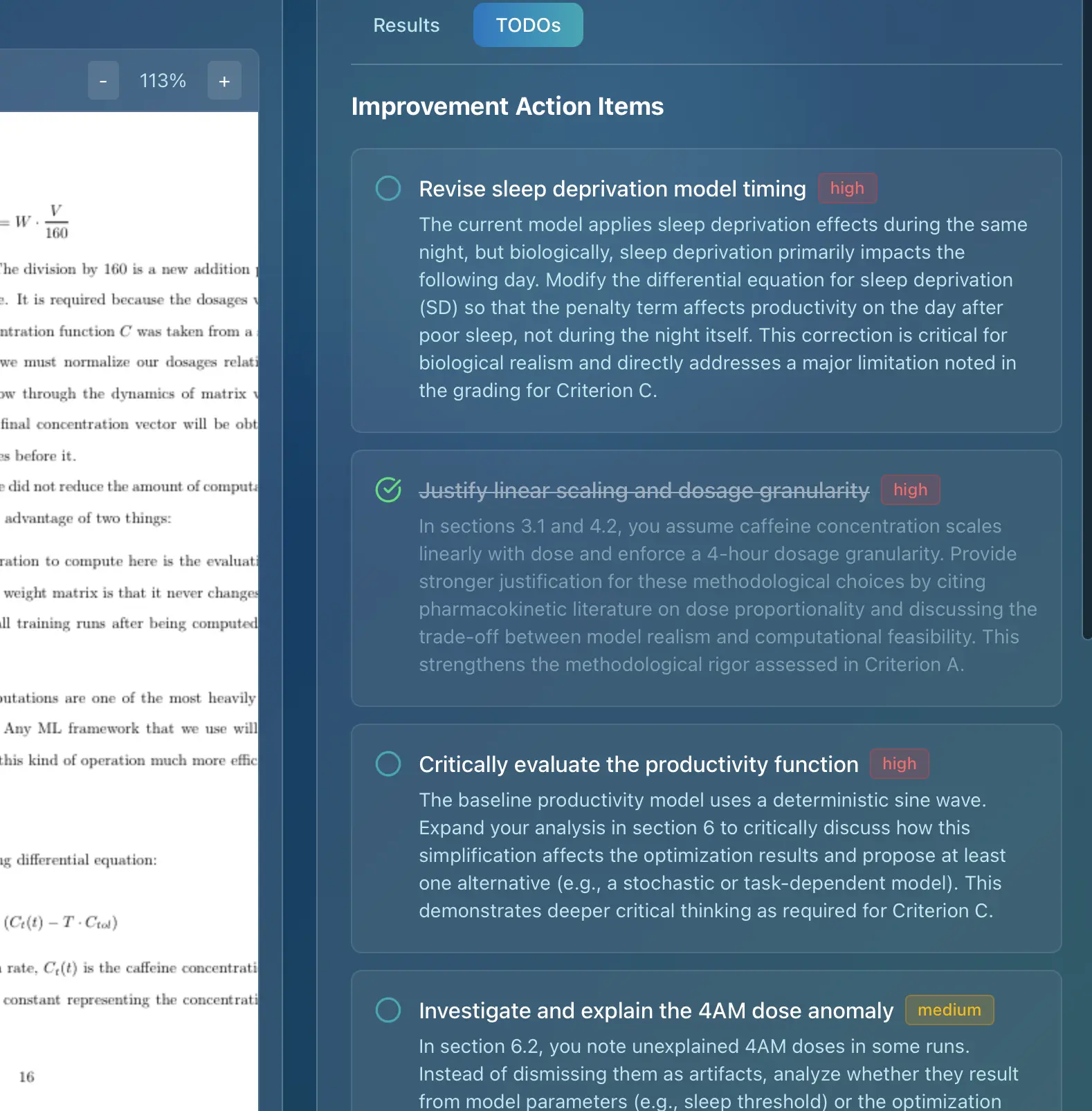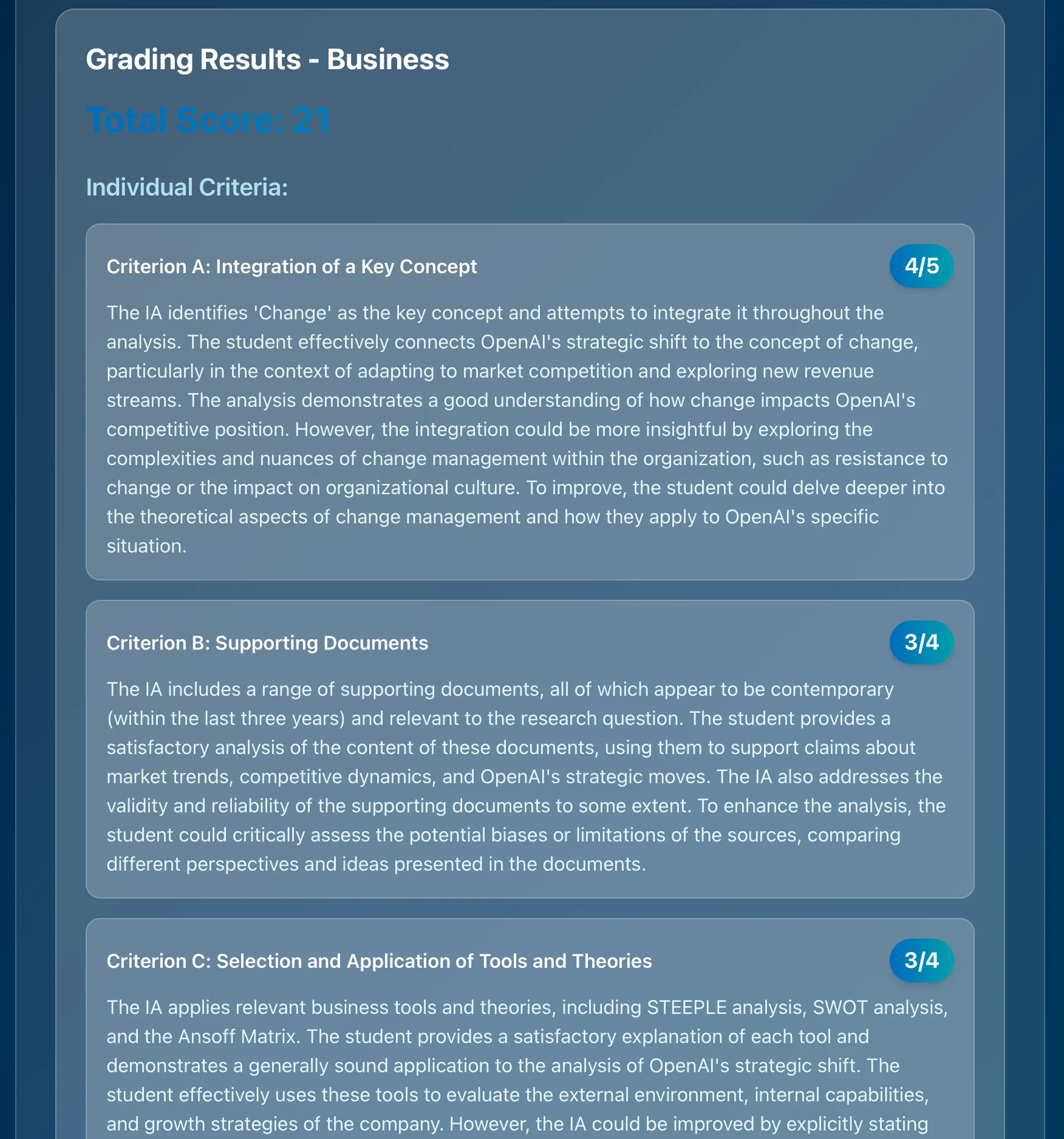Choosing Your Extended Essay Subject: A Strategic Guide
Choosing your IB Extended Essay (EE) subject is one of the most crucial decisions you'll make in your International Baccalaureate Diploma Programme. This independent research project, contributing significantly to your overall IB score, demands careful consideration. This guide provides a strategic approach to selecting a subject that aligns with your interests, skills, and academic goals, setting you up for success. We'll explore factors to consider, common pitfalls to avoid, and advanced strategies to maximize your chances of achieving a high grade. Let's dive in and help you make the right choice!
Introduction (Answer the Query Immediately)
The Extended Essay (EE) is a cornerstone of the International Baccalaureate (IB) Diploma Programme, and selecting the right subject is paramount. This 4,000-word independent research paper allows you to delve deeply into a topic of your choosing, but the sheer breadth of options can be overwhelming. This guide is designed to provide you with a strategic framework for making that crucial decision. We'll cover everything from aligning your EE with your interests and strengths to understanding the assessment criteria and avoiding common pitfalls. Think of this as your roadmap to a successful Extended Essay journey. We'll also touch upon how modern technology, including AI grading assistants, can play a role in refining your work.
Struggling with IB Assessments?
Get instant, detailed feedback on your work with AI that understands IB criteria.

Core Content Sections
Understanding the Extended Essay Requirements
Before even considering specific subjects, it's vital to understand the core requirements of the Extended Essay. Remember, the EE is an in-depth academic exploration, not just a summary of existing information.
- Independent Research: The EE requires you to conduct independent research, which may involve primary data collection (experiments, surveys, interviews) or secondary data analysis (analyzing existing research).
- Focused Research Question: You need a clear and focused research question that guides your investigation. This question should be specific enough to allow for in-depth analysis but broad enough to provide sufficient scope for research.
- Critical Analysis: The EE demands critical analysis and evaluation of sources and evidence. You need to demonstrate your ability to synthesize information, identify patterns, and draw well-supported conclusions.
- Academic Rigor: The EE must adhere to academic conventions, including proper citation, referencing, and formatting.
Aligning Your Interests and Strengths
The most successful Extended Essays are often those where students are genuinely passionate about the topic. Here's how to align your interests and strengths with your EE subject:
- Brainstorming: Start by brainstorming a list of subjects that genuinely interest you. Think about topics you enjoy learning about in class, current events that pique your curiosity, or personal experiences that have sparked your interest.
- Skills Assessment: Consider your strengths and weaknesses. Are you strong in mathematics and data analysis? Perhaps a subject like Economics or Physics would be a good fit. Are you more comfortable with qualitative research and writing? Subjects like History or English Literature might be more suitable.
- Subject Availability: Check which subjects are offered for the EE at your school. Not all subjects are available, and some may have limited supervision.
- Teacher Expertise: Consider the expertise of the teachers at your school. Having a supervisor who is knowledgeable and experienced in your chosen subject can be invaluable.
Example: A student passionate about environmental sustainability and strong in biology might consider an EE in Biology focusing on the impact of microplastics on marine ecosystems.
Evaluating Subject Suitability
Once you have a list of potential subjects, evaluate their suitability based on the following criteria:
- Researchability: Can you find sufficient resources (books, articles, data) to support your research? Some topics may be too niche or lack readily available information.
- Feasibility: Is the research question feasible given the time constraints and resources available? Avoid topics that require extensive travel, expensive equipment, or access to restricted data.
- Complexity: Is the topic complex enough to allow for in-depth analysis and critical evaluation? Avoid topics that are too simplistic or descriptive.
- Personal Connection: Do you have a personal connection to the topic that will motivate you to persevere through the challenges of the EE process?
Example: A student interested in the history of a specific local event might find it difficult to conduct sufficient research if there are limited primary sources available.
Narrowing Down Your Focus
Once you've chosen a subject, the next step is to narrow down your focus and develop a specific research question.
- Start Broad: Begin with a broad topic within your chosen subject.
- Read Extensively: Read widely on the topic to identify areas of interest and potential research questions.
- Identify Gaps: Look for gaps in the existing research or areas where there is disagreement or controversy.
- Formulate a Question: Develop a clear and focused research question that addresses a specific aspect of the topic.
Example: Instead of "The impact of climate change," a more focused research question might be "To what extent has rising sea temperature affected coral bleaching in the Great Barrier Reef over the past decade?"
Understanding the Assessment Criteria
The IB Extended Essay is assessed based on a set of criteria that cover various aspects of the research process, including:
- Focus and Method: The clarity and focus of the research question and the appropriateness of the research methods used.
- Knowledge and Understanding: The depth and breadth of knowledge demonstrated and the understanding of relevant concepts and theories.
- Critical Thinking: The ability to analyze and evaluate evidence, identify patterns, and draw well-supported conclusions.
- Presentation: The clarity, organization, and coherence of the essay.
- Engagement: The student's personal engagement with the research process.
Understanding these criteria is crucial for selecting a subject and developing a research question that allows you to demonstrate your skills and knowledge effectively.
Common Challenges/Mistakes Section
Many students face common challenges when choosing their Extended Essay subject. Here are some pitfalls to avoid:
- Choosing a Subject Solely Based on Perceived "Easiness": This often leads to a lack of genuine interest and motivation, resulting in a mediocre essay.
- Selecting a Topic That's Too Broad: A broad topic makes it difficult to conduct focused research and provide in-depth analysis.
- Failing to Consider Resource Availability: Choosing a topic with limited resources can hinder your research progress.
- Procrastinating on the Subject Selection: Delaying the subject selection process can lead to rushed decisions and a lack of preparation.
- Ignoring Teacher Guidance: Teachers can provide valuable insights and guidance based on their experience.
Solutions and Preventive Measures:
- Prioritize Interest: Choose a subject you're genuinely interested in, even if it seems challenging.
- Narrow Your Focus: Develop a specific research question that allows for in-depth analysis.
- Research Resource Availability: Ensure that there are sufficient resources available to support your research.
- Start Early: Begin the subject selection process early to allow ample time for research and planning.
- Seek Teacher Guidance: Consult with your teachers for advice and feedback.
Pro Tip: Get AI-Powered Grading
Stop second-guessing your grades. Get instant feedback aligned with official IB rubrics.

Advanced Tips/Strategies Section
For students aiming for top marks, here are some advanced strategies to consider:
- Interdisciplinary Approaches: Consider combining two or more subjects to create a unique and insightful research question. For example, you could explore the intersection of history and economics or the relationship between biology and psychology.
- Original Research: If possible, conduct original research, such as experiments, surveys, or interviews. This demonstrates a high level of engagement and critical thinking.
- Critical Evaluation of Sources: Go beyond simply summarizing sources and critically evaluate their credibility, bias, and limitations.
- Sophisticated Analysis: Use advanced analytical techniques to analyze your data and draw meaningful conclusions.
- Reflective Writing: Demonstrate a deep understanding of the research process and your own learning by reflecting on the challenges you faced and the lessons you learned.
Example: A student could combine History and Economics to analyze the economic impact of a specific historical event, using econometric techniques to quantify the effects.
Technology and Modern Assessment Section
Technology is transforming the way we approach IB assessments, including the Extended Essay. AI-powered tools can assist with various aspects of the research process, from literature reviews to data analysis. Furthermore, AI is revolutionizing the feedback process.
Marksy, as a leading AI grading assistant specifically designed for the International Baccalaureate, helps teachers provide consistent, detailed, and rubric-aligned feedback on Extended Essays. Marksy analyzes student work based on official IB criteria, providing criterion-by-criterion feedback and suggestions for improvement. This not only saves teachers valuable time but also ensures that students receive clear and actionable guidance on how to improve their work.
AI tools like Marksy use official IB rubrics to ensure accuracy and fairness in assessment. By providing objective and consistent feedback, these tools can help students understand exactly what they need to do to meet the IB's expectations. This leads to improved student outcomes and a more efficient grading process for educators.
Conclusion with Clear Next Steps
Choosing your Extended Essay subject is a critical step in your IB journey. By aligning your interests and strengths, evaluating subject suitability, narrowing your focus, and understanding the assessment criteria, you can set yourself up for success. Remember to avoid common pitfalls and seek guidance from your teachers. Embrace technology to enhance your research and writing process, and consider using AI-powered tools like Marksy to receive detailed feedback and improve your essay.
Next Steps:
- Brainstorm a list of potential subjects that interest you.
- Evaluate the suitability of each subject based on researchability, feasibility, and complexity.
- Develop a specific research question for your chosen subject.
- Consult with your teachers for advice and feedback.
- Start researching and planning your essay early.
Ready to take your IB Extended Essay to the next level? Try Marksy for free today and experience the power of AI-driven feedback! See how Marksy can help you achieve a higher score and streamline your grading workflow. [Link to Marksy website]